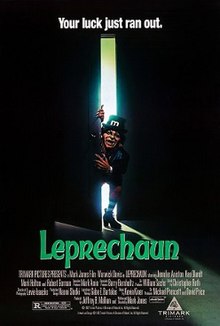Halflings. Almost every Tolkien
rip-off inspired setting has them in some form, and they follow the same formula with little deviation. Short, hairy people who love to drink, eat, smoke and embody the ridiculous ideals of pastoralism. Sometimes they're good at throwing rocks, or sneaking around. But what I've always considered the most interesting aspect of halflings is their association with luck.
 |
| Just oozing luck, these guys! |
Halflings are often considered to be preternaturally lucky. I use the word preternatural very deliberately here - halfling luck is often an innate trait not provided by magic or other sources beyond understanding, but is instead an extraordinary effect with a semi-mundane explanation. Unfortunately this explanation is often quite lacking, being summed up as "Halflings are lucky because they are halflings, and halflings are lucky." This leaves little room for the kind of narrative absurdity I'm fond of, and so I've settled on a more
supernatural reason for the extraordinary luck of little folk - they steal it.
Occasionally, when a sentient creature is born, a halfling will be birthed by a member of the same species at the exact same moment. When the neonate halfling draws its first breath (or breath equivalent) it draws the luck of the other creature in with it. The unfortunate creature is left with a peculiar and distinctive birthmark somewhere on their abdomen (luck comes from the spleen, naturally). The halfling, swollen with their stolen luck, initially looks like an ordinary member of the host race, but will never grow more than half as large as their peers. Rumors of halfings born from gnomes, or 'quarterlings', are unsubstantiated nonsense. Particularly gifted halflings can learn to harness their control over luck, draining it from their foes and gifting it to their allies.
 |
I can't remember if the leprechaun in this movie actually manipulates luck, but I'm putting this here regardless.
PUTTING A PICTURE IN BETWEEN PARAGRAPHS IS IMPORTANT TO ME, OK? |
A life devoid of luck is not a pleasant one - reliable tools seem to crumble in your hands, days of hard labour are ruined by aberrant weather and money hemorrhages from seemingly guaranteed investments. Being babies, halflings obviously don't choose to steal the luck of other creatures, but violent prejudices often form towards them regardless. A commonly held belief is that if a halfling steals someone's luck, killing the halfling will get it back. This has resulted in some very unfortunate cases of mass infanticide when a noble's child is born with a birthmark.
What little exists of halfling culture is often highly insular and borders on xenophobic, despite the vast majority of halflings being completely unrelated to one another. In areas with substantial halfling communities, news of a marked child can result in a spree of kidnappings as the halflings attempt to retrieve their newest 'relative'. As this only serves to intensify anti-halfling prejudice, it often seems the only thing saving halfling communes from complete eradication is their collective good fortune - angry mobs fail to find the halfling's poorly hidden homes, city guards forget to pack crossbow bolts, etc. The violence faced by halflings can also give rise to a culture that values bravado, with both male and female halflings constantly posturing in an attempt to show all those long legged assholes they are not to be trifled with.
 |
| Like this, but slightly taller |
Complicating matters further is the fact that no one knows exactly what causes a halfling to be born. Pregnant halflings give birth to ordinary members of the mother's host race, and halfling births do not appear to follow any temporal or spatial pattern, nor do they occur with greater frequency among certain races (don't listen to the Evincans, they know nothing)



.jpg)
